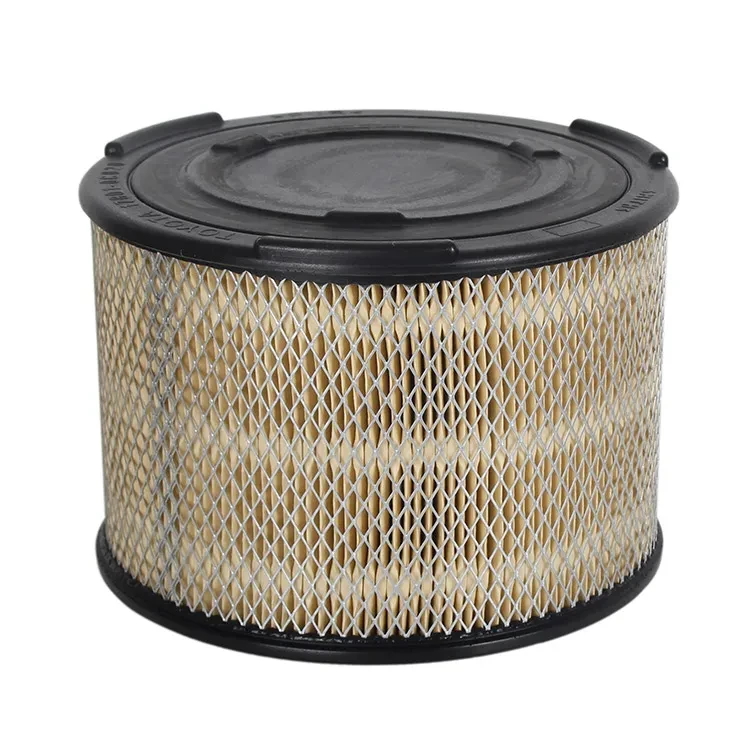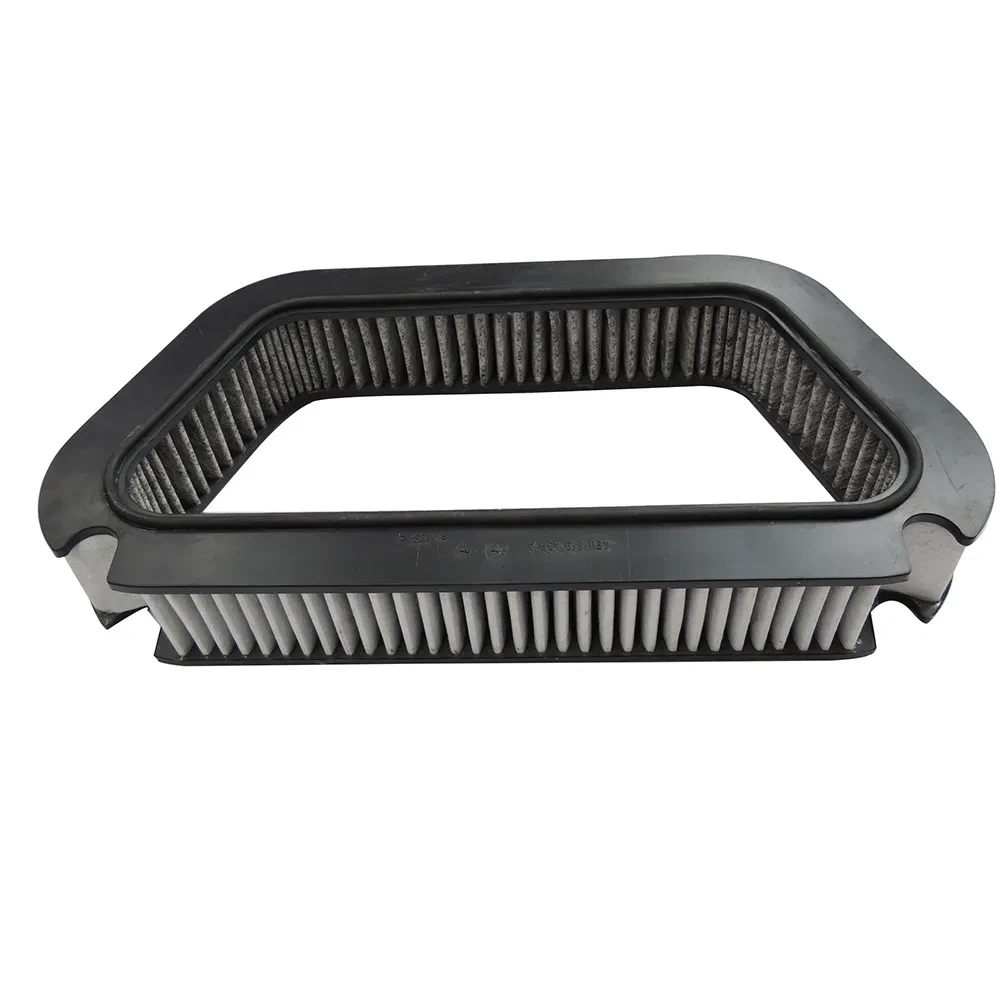
- Introduction to engine air filter purpose
and related concepts - The technical benefits of quality engine air filters
- Comparative analysis of major manufacturer solutions
- Customization options and innovations in air filter design
- Application cases illustrating real-world impact
- The importance and differentiation of car cabin filters
- Conclusion: Advancing efficiency through understanding engine air filter purpose

(engine air filter purpose)
Understanding Engine Air Filter Purpose in Modern Vehicles
Within the operational ecosystem of every modern vehicle, the engine air filter purpose plays a pivotal role. The core function of the engine air filter is to prevent dust, dirt, and particulate matter from entering the combustion chamber. As engines increasingly rely on precision fuel injection and controlled combustion, even microscopic contaminants can compromise performance and longevity. According to a 2022 study by the International Journal of Automotive Technology, engines with properly maintained air filters exhibit up to 11% higher fuel efficiency and 7% lower emissions compared to those with clogged or old filters.
The purpose of air cleaner in car systems extends beyond simply filtering incoming air. They must balance airflow with filtration effectiveness while ensuring minimal pressure drop to retain engine responsiveness. This segment demystifies why choosing the right air filter is synonymous with protecting both engine health and the environment.
Technical Advantages: Why Premium Filters Matter
High-performance filters wield tangible influence on both longevity and everyday performance. Advanced materials, such as multi-layer synthetic meshes or nanofiber elements, can capture particles as small as 5 microns with filtration rates above 98%. This is a substantial uptick from the average 70% particle capture rate in standard cellulose filters.
Key technical advantages include:
- Enhanced Engine Protection: Reduced internal abrasion from dust and debris extends engine life.
- Optimized Air Flow: Innovative pleat geometry and reduced flow resistance promote correct fuel/air ratios, improving combustion.
- Fuel Economy: Efficient filtration minimizes engine strain, contributing to annual fuel savings of up to $90 per vehicle according to EPA estimates.
- Environmental Impact: Cleaner filters help decrease hydrocarbon and particulate emissions, supporting stringent regulatory requirements.
Manufacturer Benchmark: Comparing Top Air Filter Brands
Selecting the optimal air filter entails a comprehensive comparison of leading brands, weighing factors such as filtration efficiency, cost, longevity, and warranty support. The following table contrasts prominent manufacturers based on key selection criteria:
| Manufacturer | Filtration Efficiency | Average Lifespan | Pressure Drop (Pa) | Price Range (USD) | Warranty |
|---|---|---|---|---|---|
| K&N | 98.5% | 50,000 miles | 18 | $50–$75 | 10 Years/Million Miles |
| Bosch | 98.2% | 30,000 miles | 19 | $25–$40 | 2 Years |
| Fram | 96.8% | 20,000 miles | 24 | $15–$25 | 1 Year |
| Mann+Hummel | 97.5% | 40,000 miles | 22 | $30–$55 | 3 Years |
As evidenced, premium filters from suppliers like K&N offer both exceptional filtration and extended service intervals, supporting demanding users and high-mileage vehicles. Fram and Bosch remain cost-effective choices for standard replacement cycles, while Mann+Hummel merges durability and price competitiveness for European vehicles.
Customization and Emerging Technologies in Air Filtration
Demand is rising for bespoke filtration solutions catering to unique engine configurations or extreme environments. Custom air filters may integrate specialized micron-rated media, reinforced frames for heavy-duty applications, or hydrophobic coatings for enhanced water rejection.
Recent technological advances include:
- Electrostatic Filtering Layers: Static-charged fibers increase particle capture without restricting airflow.
- Flexible Fitments: 3D-molded filter shapes maximize seal integrity in non-standard housings.
- Smart Sensors: Integrated flow and clog detection modules alert users via vehicle diagnostics or smartphone apps.
Success Stories: Effective Filtration in Action
Real-world application cases substantiate the downstream implications of superior filtration. For instance, a U.S.-based fleet operator documented a 40% reduction in engine-related breakdowns after switching to high-efficiency air filters across 200 delivery vehicles. The same company reported annual savings exceeding $100,000 in maintenance costs, largely attributed to reduced engine wear and more consistent performance.
In harsh environments, such as mining or off-road rallying, custom filter solutions have proven vital. A notable Dakar Rally team equipped with dual-stage air filters reported sustained power output and zero contaminant-induced failures across 5,000+ km of competition.
These examples highlight that the selected filtration technology does more than protect hardware; it optimizes not only operating costs but also reliability under the most demanding conditions.
The Distinction and Importance of Car Cabin Filter Purpose
While engine air filtration safeguards performance, the car cabin filter purpose is unique in protecting occupants. Cabin air filters defend against pollen, fine dust, allergens, and even micro-organisms by purifying the air entering the passenger compartment. HEPA-grade cabin filters can trap up to 99.97% of particles down to 0.3 microns, which is critical for individuals with respiratory sensitivities.
A recent survey of vehicle owners in metropolitan areas revealed that replacing a clogged cabin filter improved perceived air quality by over 45%, while also leading to better HVAC system performance and reduced odor infiltration. Although engine and cabin filters serve different roles, together they are essential for holistic vehicle maintenance—benefiting both machine and human.
Conclusion: Maximizing Efficiency through Engine Air Filter Purpose Awareness
In conclusion, understanding the comprehensive engine air filter purpose—and the broader ecosystem of automotive filtration—empowers both vehicle owners and service professionals to make informed choices. The right filter protects critical engine components, promotes cleaner emissions, and, as the market data demonstrates, yields tangible operational cost savings.
As technologies advance and customization opportunities grow, the role of the air filter has expanded from a passive barrier to an active enabler of efficiency and health—on the road, at home, and in the workshop.
Staying attentive to filtration maintenance intervals, comparative product data, and emerging innovations ensures sustained vehicle performance, lower emissions, and elevated driver comfort for years to come.

(engine air filter purpose)
FAQS on engine air filter purpose
Q: What is the engine air filter purpose in a car?
A: The engine air filter purpose is to prevent dirt, dust, and debris from entering the engine. This helps maintain engine performance and longevity. Clean air is essential for efficient fuel combustion.Q: What is the purpose of air cleaner in car engines?
A: The air cleaner in car engines removes contaminants from the incoming air before it reaches the engine. This helps protect internal engine components. Overall, it ensures optimal engine functioning.Q: How does an engine air filter benefit my vehicle?
A: An engine air filter improves fuel efficiency by ensuring clean air supply. It also reduces engine wear by blocking harmful particles. Regular replacement keeps your car running smoothly.Q: What is the car cabin filter purpose compared to engine air filters?
A: The car cabin filter purpose is to clean the air entering the cabin for passengers. It traps dust, pollen, and pollutants, improving interior air quality. In contrast, the engine air filter protects the engine itself.Q: How often should I replace my engine air filter and cabin air filter?
A: Typically, both filters should be checked every 12,000 to 15,000 miles. Replacement intervals may vary based on driving conditions and manufacturer recommendations. Regular maintenance is key for both engine performance and passenger comfort.-
Vehicle Performance with Premium Car Filter SolutionsNewsJul.02,2025
-
Upgrade Engine Performance with Timely Air Filter MaintenanceNewsJul.02,2025
-
Optimize Vehicle Health with Timely Air Filter ReplacementNewsJul.02,2025
-
Every Drive with Next-Level Car Filtration SystemsNewsJul.02,2025
-
Driving Comfort with Advanced Air Filtration SystemsNewsJul.02,2025
-
Cleaner with Next-Generation Automotive Air FiltrationNewsJul.02,2025
-
The Importance of Cabin Filter and Engine Filter: The Role and Maintenance of Cabin Filter and Engine FilterNewsJun.25,2025
Related Products




